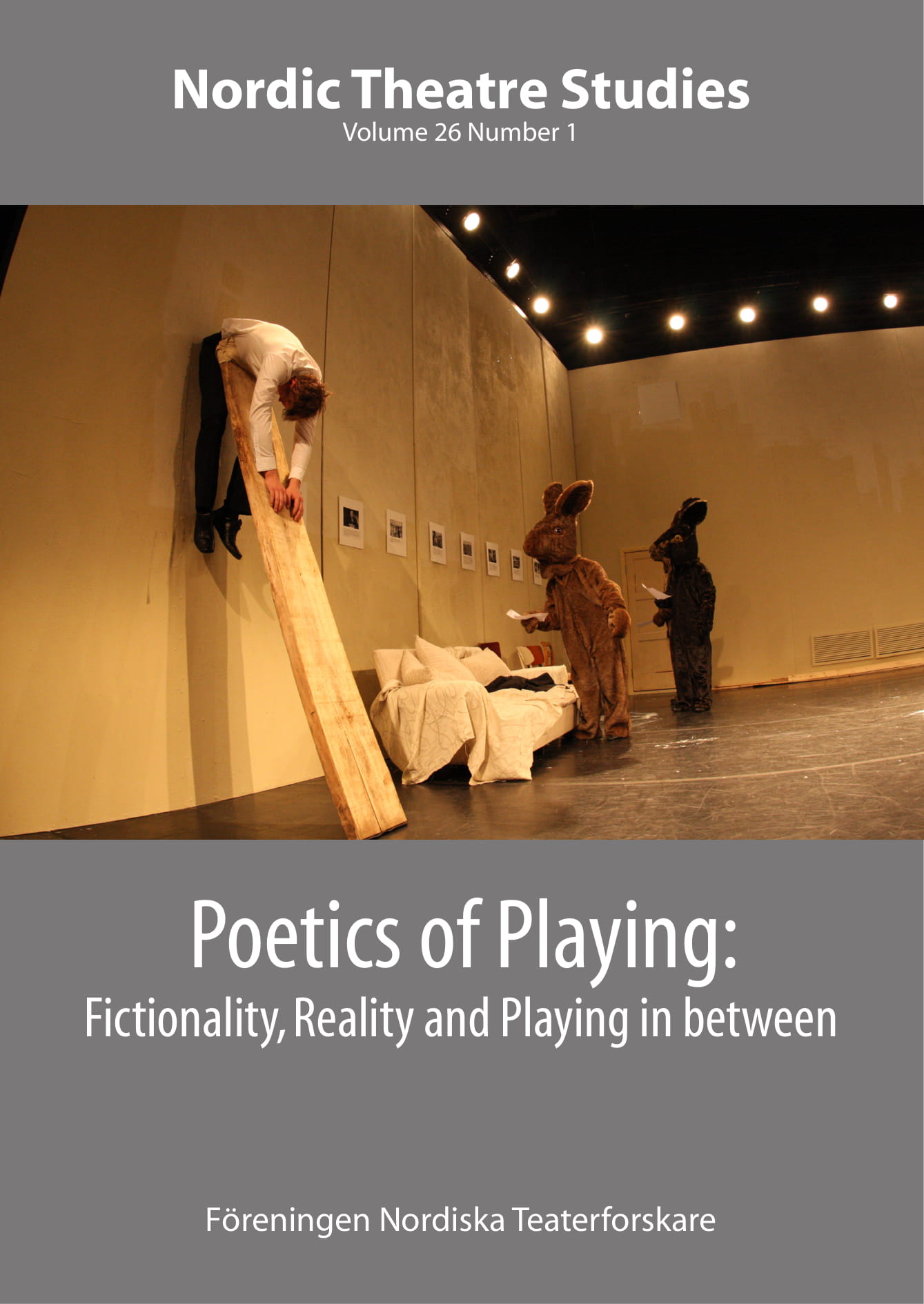Playing King
DOI:
https://doi.org/10.7146/nts.v26i1.109744Keywords:
Gustav III, Theatricalization of Politics, Swedish Theatre of the 18th Century, Yuri Lotman, Nikolai Evreinov, Catherine the GreatAbstract
The Swedish King Gustav III ruled from 1771 to 1792. His departure to the Russian war in
1788 was staged as a grandiose spectacle. The King, who was also a playwright, made the day
of his departure coincide with the symbolic date of June 23. This was the date that Gustav II
Adolph (ruled 1611-32) went off to the Thirty Years' War in 1628. The parallel between
Gustav III and the great Swedish warrior King was further emphasized by his costume made in
the style of Gustav Adolph. In this article, the author analyzes Gustav III's departure to war as a
theatrical event and explores the borders of theatrical events in the late eighteenth century.
Gustav III's ceremonial departure is placed in the framework of Nikolai Evreinov's and Yuri
Lotman's theories of theatricality which show how the King applied theatrical means to
everyday life in order to theatricalize it, i.e. to make it spectacular and symbolic. By
the atricalizing life Gustav III idealized his role of king and thus performed his power.
Theatricalization of political life not only adorned life but it also significantly changed reality;
the theatrical playing of the King entailed real consequences - Gustav III enacted his role of a
monarch in a memorabl eway and achieved his political goals. The interaction between politics
and theater is the main focus of the article. The author also explores the poetics of theatrical
playing in politics. Obviously, the relation between the King-performer and his
subjects-spectators was different from the usual actor-spectator relation in the traditional
theater. During the communication of the King-performer and his subjects-spectators the
political context was of significant importance; the main purpose of such communication was
political propaganda. As a result of his ceremonial departure and, eventually, the
theatricalization of war, the King succeded in becoming a national hero among the simple
people, which proves the efficacy of theatrical means.
Downloads
Published
How to Cite
Issue
Section
License
The copyright belongs to the authors and Nordic Theatre Studies. Users can use, reuse and build upon the material published in the journal but only for non-commercial purposes. Users are allowed to link to the files, download the files, distribute the files on a local network (preferably by links), upload the files to local repositories if their institutions require them to do so, but not republish the files without proper agreements with the journal and the author.

